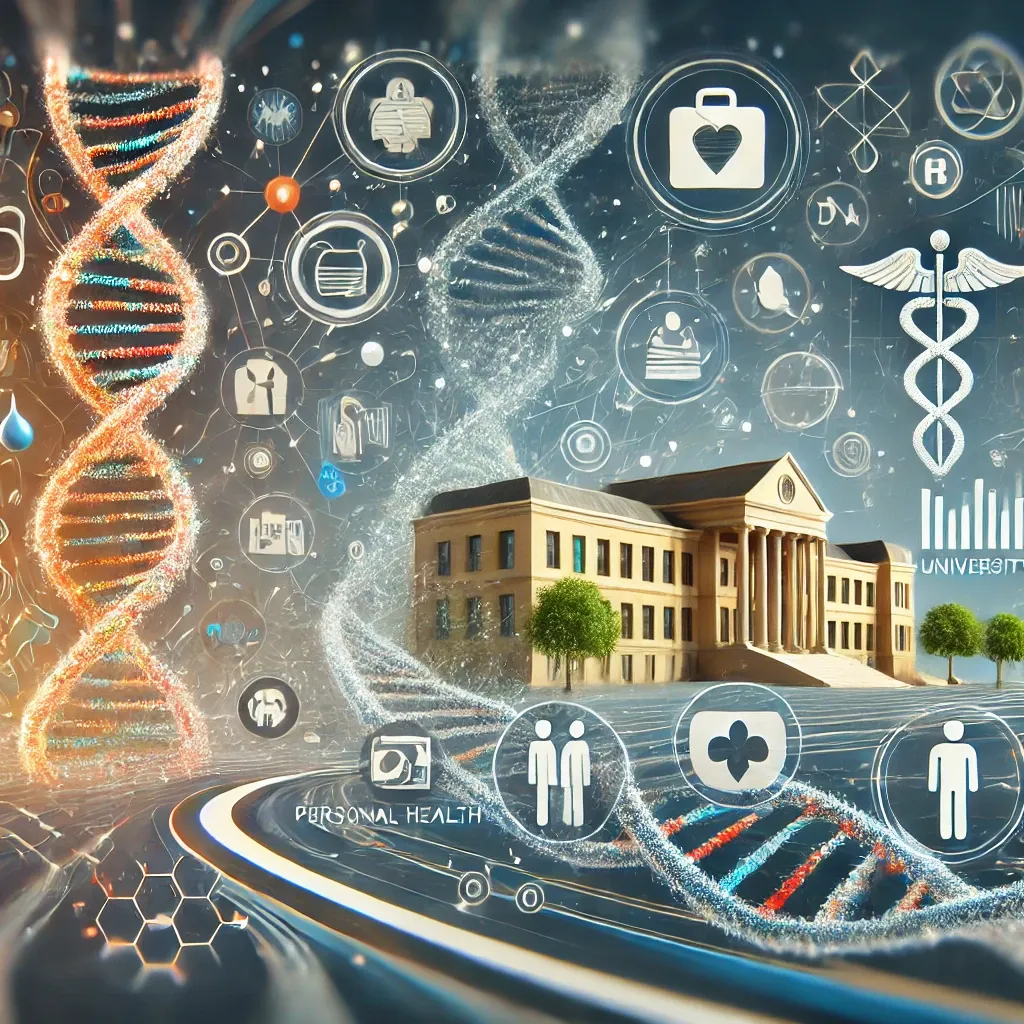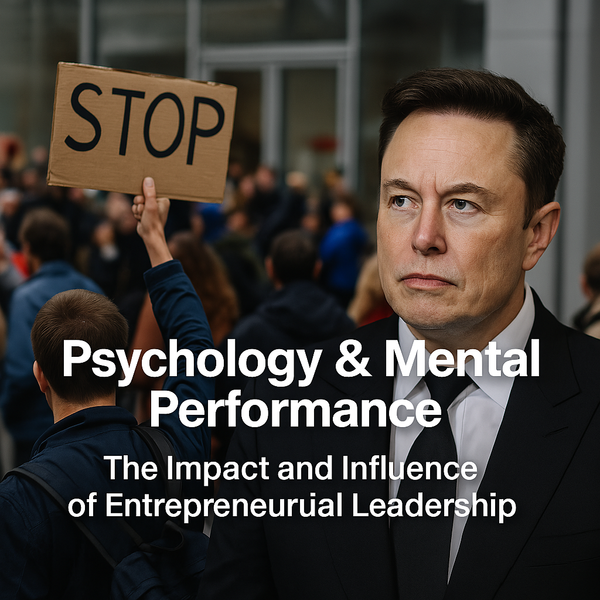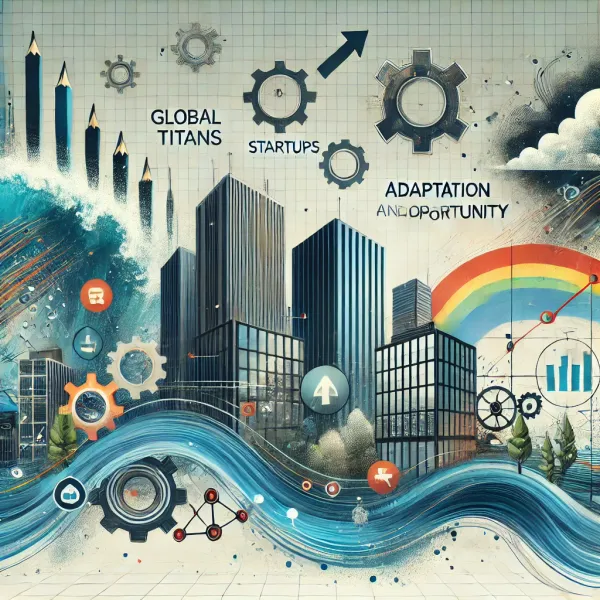Unmasking Biohacking: How Columbia University's Mask Ban Impacts Health Trends

Health & Biohacking: A New Perspective in the Wake of Current Events
In the fast-paced world we live in today, where technology reigns supreme and our lifestyles continue to evolve, the quest for optimal health has never been more important. This has given rise to the intriguing and innovative world of biohacking. But what happens when this world intersects with politics, academic freedom and controversial decisions?
Unmasking the Debate: Columbia University's Controversial Move and Its Impact on Biohacking
The recent decision by Columbia University to ban masks on campus, following a $400M funding freeze by former President Donald Trump, has sparked a fervent debate within academic circles. Many argue about the balance between government influence and academic freedom. This controversy not only has significant implications for the future of education and politics but also provides a unique lens through which to explore the concept and potential of biohacking. How do these events tie into our pursuit of health, and what can they teach us about our own body's capabilities and limitations? Join us as we delve into these pressing questions and more, in the fascinating realm of Health & Biohacking.
Health & Biohacking: A New Perspective in the Wake of Current Events
In the fast-paced world we live in today, where technology reigns supreme and our lifestyles continue to evolve, the quest for optimal health has never been more important. This has given rise to the intriguing and innovative world of biohacking. But what happens when this world intersects with politics, academic freedom and controversial decisions?
Unmasking the Debate: Columbia University's Controversial Move and Its Impact on Biohacking
The recent decision by Columbia University to ban masks on campus, following a $400M funding freeze by former President Donald Trump, has sparked a fervent debate within academic circles. Many argue about the balance between government influence and academic freedom. This controversy not only has significant implications for the future of education and politics but also provides a unique lens through which to explore the concept and potential of biohacking. How do these events tie into our pursuit of health, and what can they teach us about our own body's capabilities and limitations? Join us as we delve into these pressing questions and more, in the fascinating realm of Health & Biohacking.
Discussion on Opposing Views on 'Health & Biohacking'
The world of health and biohacking is one that is constantly evolving and pushing the boundaries of what we understand about the human body. Recent developments at Columbia University have generated a thoughtful debate about the role of government influence and academic freedom in this field.
Background of the Issue
Recently, Columbia University agreed to ban masks on campus following a $400M funding freeze by Donald Trump, as reported by Hindustan Times. This decision has sparked a heated discussion within academic circles about the balance between government influence and academic freedom.
Arguments in Favor of the Ban
Supporters of the ban argue that it is a necessary measure to protect public health. They believe that the government has a responsibility to regulate health practices, especially in a pandemic situation. The argument is that mask-wearing may contribute to the spread of the virus, and therefore, it is crucial to enforce the ban to ensure the safety of the community. Furthermore, supporters contend that the funding freeze is a legitimate form of government influence. They assert that the government has a right to dictate policies in institutions that receive public funding.
Arguments Against the Ban
Conversely, critics of the ban argue that it infringes on academic freedom. They believe that universities should be able to make their own decisions regarding health practices, without interference from the government. Critics assert that the ban is a form of government overreach that undermines the independence of academic institutions. Moreover, critics argue that the funding freeze is a form of political coercion. They believe that financial threats should not be used to influence academic policies or practices.
Implications for Health & Biohacking
This controversy has significant implications for the field of health and biohacking. Those in favor of the ban may view it as a necessary measure to control health practices and ensure the safety of the public. However, critics might see it as a threat to the autonomy and innovation that drives the field of biohacking.
Conclusion
The debate on the ban at Columbia University highlights the complex relationship between government influence and academic freedom in the field of health and biohacking. While the safety of the public is paramount, it is important to ensure that academic freedom is not compromised in the process. As the field continues to evolve, it is crucial to continue these discussions and ensure a balance between government regulation and academic innovation.
Discussion on Opposing Views on 'Health & Biohacking'
The world of health and biohacking is one that is constantly evolving and pushing the boundaries of what we understand about the human body. Recent developments at Columbia University have generated a thoughtful debate about the role of government influence and academic freedom in this field.
Background of the Issue
Recently, Columbia University agreed to ban masks on campus following a $400M funding freeze by Donald Trump, as reported by Hindustan Times. This decision has sparked a heated discussion within academic circles about the balance between government influence and academic freedom.
Arguments in Favor of the Ban
Supporters of the ban argue that it is a necessary measure to protect public health. They believe that the government has a responsibility to regulate health practices, especially in a pandemic situation. The argument is that mask-wearing may contribute to the spread of the virus, and therefore, it is crucial to enforce the ban to ensure the safety of the community. Furthermore, supporters contend that the funding freeze is a legitimate form of government influence. They assert that the government has a right to dictate policies in institutions that receive public funding.
Arguments Against the Ban
Conversely, critics of the ban argue that it infringes on academic freedom. They believe that universities should be able to make their own decisions regarding health practices, without interference from the government. Critics assert that the ban is a form of government overreach that undermines the independence of academic institutions. Moreover, critics argue that the funding freeze is a form of political coercion. They believe that financial threats should not be used to influence academic policies or practices.
Implications for Health & Biohacking
This controversy has significant implications for the field of health and biohacking. Those in favor of the ban may view it as a necessary measure to control health practices and ensure the safety of the public. However, critics might see it as a threat to the autonomy and innovation that drives the field of biohacking.
Conclusion
The debate on the ban at Columbia University highlights the complex relationship between government influence and academic freedom in the field of health and biohacking. While the safety of the public is paramount, it is important to ensure that academic freedom is not compromised in the process. As the field continues to evolve, it is crucial to continue these discussions and ensure a balance between government regulation and academic innovation.
Health & Biohacking: Latest Trends and Expert Opinions
In this fast-paced era, where technology and science are inextricably linked to daily life, the latest trends in health and biohacking are evolving at an unprecedented speed. From genetic engineering to nootropic supplements, these cutting-edge practices are reshaping our understanding of health, wellness, and human potential.
What is Biohacking?
Biohacking, as defined by experts, is the practice of changing our chemistry and physiology through science and self-experimentation to energize and enhance the body. It's a broad term that can encompass everything from installing do-it-yourself body enhancements to genetic engineering.
Current Trends in Health & Biohacking
The world of biohacking is vast and ever-changing. Some of the latest trends include: 1. Nootropics: These are drugs, supplements, and other substances that may improve cognitive function, particularly executive functions, memory, creativity, or motivation, in healthy individuals. 2. Genetic Sequencing: With the advent of affordable home genetic sequencing kits, people are now able to learn about their genetic predispositions and take steps to optimize their health accordingly. 3. Microbiome Manipulation: This involves altering the bacteria in your gut for better health, whether through diet, probiotic supplements, or fecal microbiota transplants.
Expert Opinions and Controversies
While biohacking has the potential to revolutionize personal health, it also carries certain risks and controversies. One of the most recent controversies involves the balance between government influence and academic freedom. This came to the fore when Columbia University agreed to ban masks on campus after a $400M funding freeze by Donald Trump, as reported by Hindustan Times. This move has drawn attention and debate within academic circles. Critics argue that such government involvement can undermine academic freedom and the pursuit of knowledge. On the other hand, proponents argue that it is necessary for ensuring safety and ethical practices in research and experimentation. This debate raises important questions about the role of government in regulating health practices and the extent to which individuals can modify their own bodies.
Conclusion
The world of health and biohacking is both exciting and contentious. As science continues to advance, it is imperative that ethical considerations and personal freedoms are balanced with the possibilities these new technologies offer. As biohackers continue to push the boundaries of what is possible, we can expect this field to continue to evolve in unexpected ways.
Health & Biohacking: Latest Trends and Expert Opinions
In this fast-paced era, where technology and science are inextricably linked to daily life, the latest trends in health and biohacking are evolving at an unprecedented speed. From genetic engineering to nootropic supplements, these cutting-edge practices are reshaping our understanding of health, wellness, and human potential.
What is Biohacking?
Biohacking, as defined by experts, is the practice of changing our chemistry and physiology through science and self-experimentation to energize and enhance the body. It's a broad term that can encompass everything from installing do-it-yourself body enhancements to genetic engineering.
Current Trends in Health & Biohacking
The world of biohacking is vast and ever-changing. Some of the latest trends include: 1. Nootropics: These are drugs, supplements, and other substances that may improve cognitive function, particularly executive functions, memory, creativity, or motivation, in healthy individuals. 2. Genetic Sequencing: With the advent of affordable home genetic sequencing kits, people are now able to learn about their genetic predispositions and take steps to optimize their health accordingly. 3. Microbiome Manipulation: This involves altering the bacteria in your gut for better health, whether through diet, probiotic supplements, or fecal microbiota transplants.
Expert Opinions and Controversies
While biohacking has the potential to revolutionize personal health, it also carries certain risks and controversies. One of the most recent controversies involves the balance between government influence and academic freedom. This came to the fore when Columbia University agreed to ban masks on campus after a $400M funding freeze by Donald Trump, as reported by Hindustan Times. This move has drawn attention and debate within academic circles. Critics argue that such government involvement can undermine academic freedom and the pursuit of knowledge. On the other hand, proponents argue that it is necessary for ensuring safety and ethical practices in research and experimentation. This debate raises important questions about the role of government in regulating health practices and the extent to which individuals can modify their own bodies.
Conclusion
The world of health and biohacking is both exciting and contentious. As science continues to advance, it is imperative that ethical considerations and personal freedoms are balanced with the possibilities these new technologies offer. As biohackers continue to push the boundaries of what is possible, we can expect this field to continue to evolve in unexpected ways.
FAQs on Health and Biohacking
1. What is Biohacking?
Biohacking is a broad term that encompasses a wide array of practices and activities. It generally refers to the process of manipulating your body and mind to improve health, well-being, and performance. This can range from dietary changes and exercise routines to more advanced techniques like genetic engineering. For a detailed understanding, read this article on Healthline.
2. How can Biohacking improve my health?
Biohacking can improve health in numerous ways. It can help you understand your body better, allowing you to make more informed decisions about your diet, exercise, sleep, and stress management. It can also involve technological interventions, like using devices to monitor biometrics or even augment physical capabilities. This guide from Medical News Today provides an in-depth look at various biohacking techniques.
3. Is Biohacking safe?
The safety of biohacking depends largely on the specific practices involved. Diet, exercise, and sleep hacking are generally safe with proper guidance. However, more radical forms of biohacking, like DIY genetic engineering or implanting devices in the body, carry significant risks. Always consult with a professional before diving into these areas.
4. What are some easy ways to start Biohacking?
Starting with simple activities like adjusting your diet, improving your sleep hygiene, or incorporating regular physical activity into your routine can be great first steps in biohacking. Here's a comprehensive beginner's guide to help you get started.
5. How does Biohacking relate to traditional medicine?
Biohacking and traditional medicine can complement each other. While traditional medicine focuses on treating diseases, biohacking is more about prevention and optimization. However, some biohacking practices may not be endorsed by traditional medicine, so it's crucial to seek professional advice.
6. Can Biohacking help with mental health?
Yes, some forms of biohacking, like neurofeedback or meditation, can help improve mental health. These practices can aid in stress management, reduce anxiety, and improve focus. This article from Verywell Mind discusses biohacking techniques for mental health.
7. Are there any ethical concerns with Biohacking?
Yes, ethical concerns regarding biohacking arise, especially with practices like DIY genetic engineering and body modification. These involve significant health risks and raise questions about consent, access, and the potential for misuse. The World Health Organization has more information on this topic.
8. Where can I learn more about Biohacking?
There are many resources online to learn more about biohacking. Websites like Biohackers Guide and Biohacking.com provide a wealth of information.
Conclusion
Biohacking, while a fascinating concept, demands a responsible and informed approach. It offers the potential to improve physical and mental health, but it's essential to consult with professionals and consider ethical implications before delving into radical practices. Lastly, regarding the news about Columbia University and its decision to ban masks on campus after a $400M funding freeze by Donald Trump, it highlights the critical debate of academic freedom versus government influence. It emphasizes the importance of universities maintaining academic autonomy and the potential consequences when this balance is disrupted. This event could have far-reaching implications for the future of higher education policy and funding.
FAQs on Health and Biohacking
1. What is Biohacking?
Biohacking is a broad term that encompasses a wide array of practices and activities. It generally refers to the process of manipulating your body and mind to improve health, well-being, and performance. This can range from dietary changes and exercise routines to more advanced techniques like genetic engineering. For a detailed understanding, read this article on Healthline.
2. How can Biohacking improve my health?
Biohacking can improve health in numerous ways. It can help you understand your body better, allowing you to make more informed decisions about your diet, exercise, sleep, and stress management. It can also involve technological interventions, like using devices to monitor biometrics or even augment physical capabilities. This guide from Medical News Today provides an in-depth look at various biohacking techniques.
3. Is Biohacking safe?
The safety of biohacking depends largely on the specific practices involved. Diet, exercise, and sleep hacking are generally safe with proper guidance. However, more radical forms of biohacking, like DIY genetic engineering or implanting devices in the body, carry significant risks. Always consult with a professional before diving into these areas.
4. What are some easy ways to start Biohacking?
Starting with simple activities like adjusting your diet, improving your sleep hygiene, or incorporating regular physical activity into your routine can be great first steps in biohacking. Here's a comprehensive beginner's guide to help you get started.
5. How does Biohacking relate to traditional medicine?
Biohacking and traditional medicine can complement each other. While traditional medicine focuses on treating diseases, biohacking is more about prevention and optimization. However, some biohacking practices may not be endorsed by traditional medicine, so it's crucial to seek professional advice.
6. Can Biohacking help with mental health?
Yes, some forms of biohacking, like neurofeedback or meditation, can help improve mental health. These practices can aid in stress management, reduce anxiety, and improve focus. This article from Verywell Mind discusses biohacking techniques for mental health.
7. Are there any ethical concerns with Biohacking?
Yes, ethical concerns regarding biohacking arise, especially with practices like DIY genetic engineering and body modification. These involve significant health risks and raise questions about consent, access, and the potential for misuse. The World Health Organization has more information on this topic.
8. Where can I learn more about Biohacking?
There are many resources online to learn more about biohacking. Websites like Biohackers Guide and Biohacking.com provide a wealth of information.
Conclusion
Biohacking, while a fascinating concept, demands a responsible and informed approach. It offers the potential to improve physical and mental health, but it's essential to consult with professionals and consider ethical implications before delving into radical practices. Lastly, regarding the news about Columbia University and its decision to ban masks on campus after a $400M funding freeze by Donald Trump, it highlights the critical debate of academic freedom versus government influence. It emphasizes the importance of universities maintaining academic autonomy and the potential consequences when this balance is disrupted. This event could have far-reaching implications for the future of higher education policy and funding.




